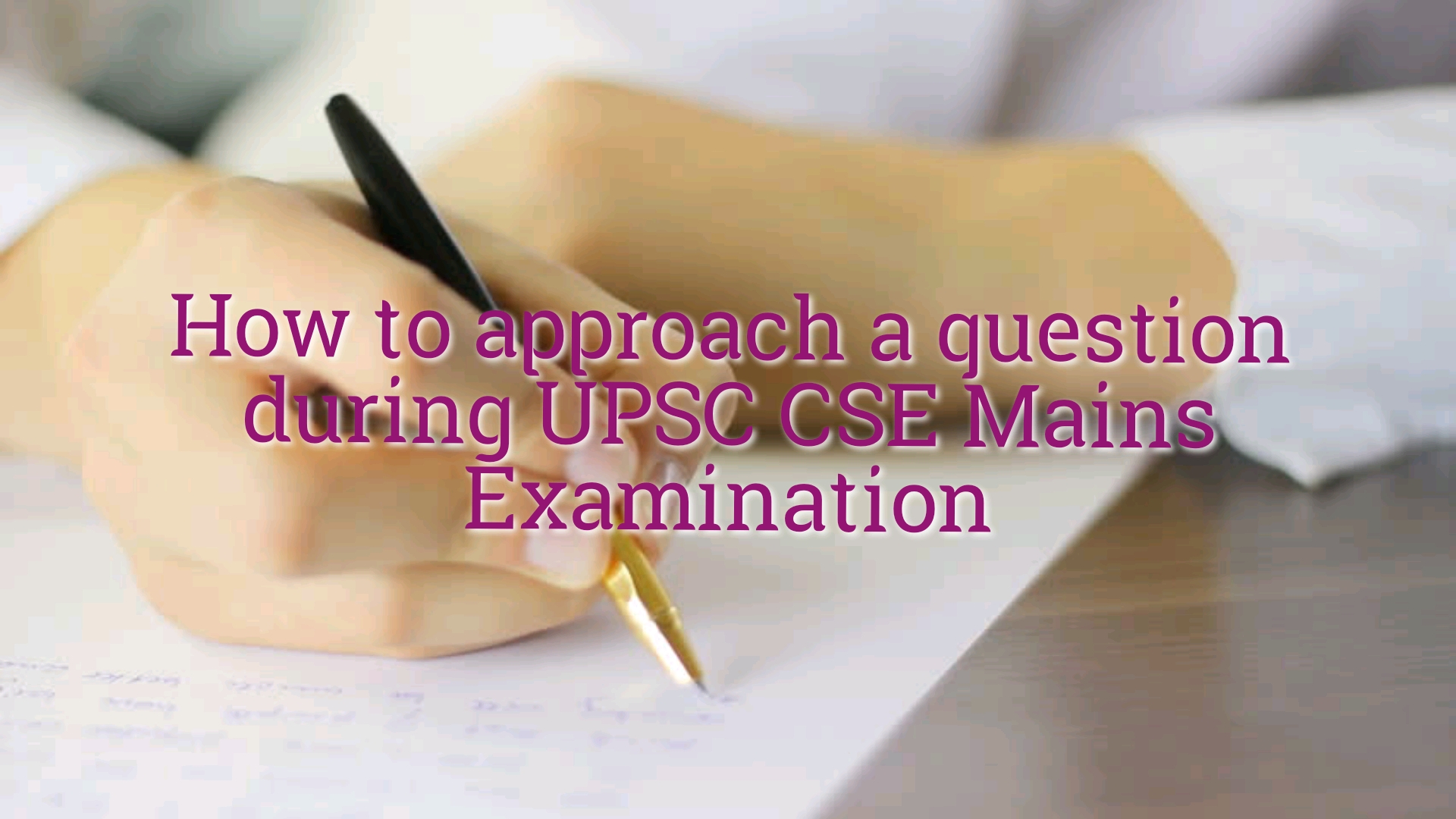




Attempting maximum questions and giving all the relevant points related to the topic may be great for an aspirant, but it may not be good enough to clear the UPSC CSE Mains examination. There are plenty of instances where an aspirant finds himself or herself in complete darkness. Most of them don't find any good reason behind their poor marks in UPSC Civil Services Mains examination.
The question they ask is something like :
I attempted all the questions and wrote relevant points which I had read from my own notes. What else do I need to do to get maximum marks for my answers ?

Well, your failure may well be written behind the directives mentioned in the question, which you have failed to identify or understand.

If we go by the definition, a Directive is an instruction which tells you what to do with content words given in the question. They guide you to follow a clear path as far your your answer/essay is concerned. You must follow its instruction to make your answer relevant and worthy to be a good answer. In the UPSC Civil Services Mains General Studies and Optional question papers, we see lots of Directive words. Almost all the question papers have directives like : ‘Comment’, ‘ Examine’, ‘Critically Examine’, ‘Analyse’, ‘Critically Evaluate’, ‘Assess’, ‘Outline’, ‘Justify’ and ‘Discuss Critically’ etc.
They indeed have some meaning and define the demand of the very question. While a topic may have many important points related to it, the relevant ones are only those which substantiates the demand of the very directive. All other will not only waste your time but also reduce your chances in one way or many.
Get the benefit of "Earn While You Learn" opportunity
Take part in our Quiz
These words/phrases limit the scope of your answer. For example , if we take a question from the 2019 General Studies I paper
" Assess the role of British Imperial Power in complicating the process of Transfer of power during 1940s."
Here, we have three parts to this question :
1. How did the British Imperial Power complicated the Transfer of Power ?
2. We need to look at only the events and their significance which happened during 1940s.
3. We need to assess them.
Here, the timeline prescribed is the Constraint and Assess is the keyword. So a mere discussion on the Complications created by the British Imperial power will definitely not land you the marks your knowledge deserve.
Let us take a general question and discuss it with different directives
Q1. There is a Growing Divergence in the relationship between Poverty and Hunger in India. The shrinking of social expenditure by the Government is forcing the poor to spend more on Non-Food essential itmes squeezing their food-budget. Elucidate.
Well, before getting into anything, we must know whether there are any information given or assumption to be taken by default. Here, in this case there are some assumptions or facts to be taken as granted. They are
a. There is a Growing Divergence in the relationship between Poverty and Hunger in India.
b. Social expenditure by the Government is shrinking.
c. The reason mentioned in (b) is forcing the poor to spend more on Non-Food essential itmes squeezing their food-budget.
In this case, you may treat these information as your limiting factor or constraints.
The Directive tells you how to use these limiting factors in a wise manner.
For example, here it is ELUCIDATE. It means that you need to explain it by accepting the fact. So there is no way you can write something against the given facts. The directive may well have been "EXPLAIN" or " Substantiate" or " Illuminate". The Approach needs to be supportive. Here
What if the question was like : "Critically examine the role of reduced Government Social Expenditure in the growing divergence between Poverty and Hunger".
Here, with Examine and Critically examine being the directive, you have a lot of independence even to deny the fact , but in a positive and solution centric way. But unlike the previous keywords, here you are not bound to be supportive. If you feel, you have strong enough reasons not to agree with the given fact, You may. Justification is the most important factor.
What if the directive was ‘Analyse’ in the question
When asked to analyse, you need to break the question into different parts and carefully examine the details and establish a meaningful interrelationship among them. To Analyse is to dig deeper than what you have done when asked to examine . You need to look into a 360 degree approach and try to cover as many aspects as you can during the examination hall.
Discuss : It is nothing but a written debate. You are given full license to either agree with the fact or to deny it completely. However, your reasoning ability will make you "Either a Full or a King". Always take a side in which you can write your argument in a very strong way. These I have found to be most complicated keyword among all. So Beware, while enjoying your Freedom.
Keywords like, Describe, Explain are a bit less complicated. They would require an argument and data in support of the fact given in the question. However, the demand of the question is far less compared to the other directives.
So, we have learnt that there are mainly two types of Directives. Directives like Discuss, Elucidate, Explain, Illuminate and Substantiate acts as constraints for you. They wont let you take any other opinion than the one implanted in the given facts. You need to be supportive without much freedom. On the other hand, directives like "Examine", Critically Examine", "Analyse" gives you the freedom to take a different side, but definitely in a positive way.
With dedicated practice you will be able to clearly differentiate between these directives. Without going through these words you can still get decent marks but there is every chance that you will not end up in the final list of the selcted ones.
While these directives guides you to stay on course during writing the answer, a solution centric approach and a middle path definitely will guide you towards a very strong result.
You may join us for practice.
© 2024 iasgyan. All right reserved